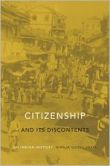The Changing Idea of Who is a Citizen
By Niraja Gopal Jayal
Harvard University Press, $45.00, 376 pages
The idea of citizenship, and who qualifies as a citizen of a state, stretches back to the rise of the nation-state in 1638. Each state had its own concepts, ideas and ideals, thus they defined it in particular ways – letting some groups in to participate while making other groups work harder for it or not allowing them to be citizens at all. Some nations base citizenship on a person’s parents, religion or even ethnic group.
A place like India is a bit more complicated. Born out of the ashes of the British Empire, it did not have a clear definition of who could be a citizen of the new country. There were many competing claims. Certain groups felt that a person must be a Hindu, and of a certain caste, to be considered a citizen, while other groups felt it should be more inclusive.
In this book we get to view the debates and the decisions, and how it has changed over time. Just because the definition of a citizen is established at the birth of a nation does not mean that definition will always stay the same. The idea of citizenship has changed, and Niraja Jayal does a good job bringing the reader along for the ride.
Reviewed by Kevin Winter
[amazon asin=0674066847&text=Buy On Amazon][amazon asin=0674066847&text=Buy On Amazon&template=carousel]

